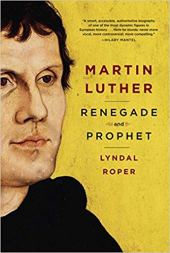 Every year since 2015, I’ve posted a summer reading list in late spring. I deeply enjoy the ambitious feeling that comes from dreaming about what I want to learn about or engage with over the coming months, and I still feel a residue of excitement about the freedom from stressful semesters, even though I’ve now been finished with my undergraduate studies for a while. However, this was a hectic summer, and for some reason, I didn’t manage to publish the reading list. But I still made a list, and even did a passable job at working my way through it. So, here are some reflections looking back at the summer reading list: 2018 edition. For organizational purposes, I’ve divided them up into church history, spirituality, and theology, though the topics explored in these titles do of course bleed into one another.
Every year since 2015, I’ve posted a summer reading list in late spring. I deeply enjoy the ambitious feeling that comes from dreaming about what I want to learn about or engage with over the coming months, and I still feel a residue of excitement about the freedom from stressful semesters, even though I’ve now been finished with my undergraduate studies for a while. However, this was a hectic summer, and for some reason, I didn’t manage to publish the reading list. But I still made a list, and even did a passable job at working my way through it. So, here are some reflections looking back at the summer reading list: 2018 edition. For organizational purposes, I’ve divided them up into church history, spirituality, and theology, though the topics explored in these titles do of course bleed into one another.
1. Church History
 The last few years have witnessed an upsurge in the publication of titles related to the era of the Protestant Reformation, thanks in large part to the Reformation’s 500th anniversary last year. Out of all these books, I think Lyndal Roper’s Martin Luther: Renegade and Prophet stands a fairly good chance of enduring as a significant contribution to the study of Luther’s life and work. Roper’s background as a historian of early modern Europe at Oxford gives her the ability to paint a textured portrait of Luther’s world. In the pages of this book, Luther comes across as a gregarious, intelligent, passionate, as well as deeply flawed individual. Roper makes it clear for her readers that she wants to neither idolize or denigrate the German Reformer. Rather, she wants to understand the development of his inner world and the nature of his internal contradictions. This was a vivid, in-depth book that successfully avoided being reductive in its portrayal of its subject, which is something one always hopes for in a biography. Continue reading
The last few years have witnessed an upsurge in the publication of titles related to the era of the Protestant Reformation, thanks in large part to the Reformation’s 500th anniversary last year. Out of all these books, I think Lyndal Roper’s Martin Luther: Renegade and Prophet stands a fairly good chance of enduring as a significant contribution to the study of Luther’s life and work. Roper’s background as a historian of early modern Europe at Oxford gives her the ability to paint a textured portrait of Luther’s world. In the pages of this book, Luther comes across as a gregarious, intelligent, passionate, as well as deeply flawed individual. Roper makes it clear for her readers that she wants to neither idolize or denigrate the German Reformer. Rather, she wants to understand the development of his inner world and the nature of his internal contradictions. This was a vivid, in-depth book that successfully avoided being reductive in its portrayal of its subject, which is something one always hopes for in a biography. Continue reading





